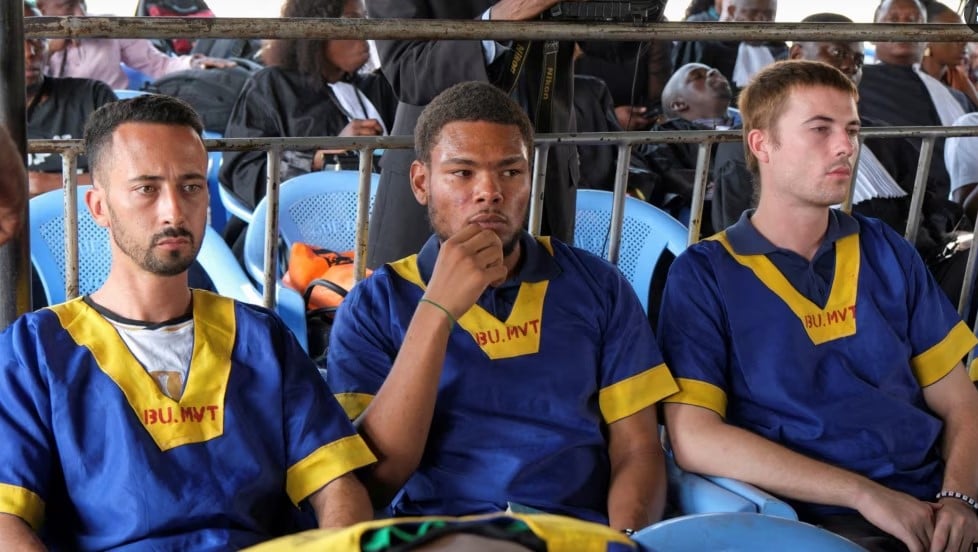Prime
Kiswahili teaching to be rolled out at district level

NRM secretary general Richard Todwong and James Magode Ikuya, tState Minister for East African Community Affairs during a press conference held at Kingdom Kampala on August 15, 2024.
What you need to know:
- Although the Ministry of Education and Sports has not fully endorsed Kiswahili, Magode explained that the programme will follow a comprehensive 12-month curriculum, allowing learners to graduate with an academic certificate in Kiswahili.
The office of the First Deputy Prime Minister, who is also the Minister for East African Community Affairs, has announced final plans to promote the Kiswahili language in Uganda.
The Ministry will establish Kiswahili Learning and Teaching Centers at the district and local government levels, with the initiative set to launch in Jinja City on October 2, 2024.
Mr James Magode Ikuya, the State Minister for East African Community Affairs, shared these plans at a press conference held at the Kingdom Kampala on Thursday, representing his superior, Ms Rebecca Kadaga. He stated that rolling out the programme at various levels will expose Ugandans to Kiswahili, helping them develop language skills gradually.
“We will provide detailed information to the public about the locations of Kiswahili Centers at the local government level,” Mr Magode said.
Although the Ministry of Education and Sports has not fully endorsed Kiswahili, Magode explained that the programme will follow a comprehensive 12-month curriculum, allowing learners to graduate with an academic certificate in Kiswahili.
“We started the pioneer class with 30 students, and I am pleased to announce that it has now grown to over 700 learners. These students meet at the National Resistance Movement (NRM) party headquarters every Wednesday and Saturday from 9 a.m. to 12 p.m. to study Kiswahili. Most of our learners can now competently speak the language and are ready to teach others in their communities,” he said.
Additionally, a group of Kiswahili cadres has been sent on a seven-day tour to Tanzania and Zanzibar to immerse themselves in the Kiswahili-speaking environment. This experience will allow them to share knowledge and further develop their language skills.
“I am very excited that the ministry, in partnership with the NRM Secretariat, has made such progress. Today, we are seeing the first group of students going for benchmarking and experience sharing. After their graduation, we will enroll a new group to continue this initiative,” said Richard Todwong, Secretary General of the National Resistance Movement.
During the press conference, Todwong emphasized that learning Kiswahili could help address regional unemployment challenges, as many citizens struggle to find jobs due to communication barriers.
Kiswahili students speak out
The beneficiaries of the seven-day tour to Tanzania and Zanzibar welcomed the opportunity, expressing hope for social and economic transformation as they explore the biodiversity of the coastal regions.
Amos Wambede, a Mukono Councillor and one of the students, said, “I thank God that this program will help me learn the language. I have met people I’ve never met before, and I’m really happy about this program. I urge others to join us, regardless of political affiliations.
Let’s enjoy learning the language together.”
Fred Kasheijja, another student, shared, “I have been learning Kiswahili since September last year. As Ugandans, we need Kiswahili for communication—in hospitals, public spaces, and education. The language will unite us and help fight corruption. I can now speak Kiswahili in any East African country.”
Juliet Kemirembe added, “We expect to interact with many Tanzanians and learn more standard Swahili. I can also ask for something to eat in any restaurant in any East African country.”




